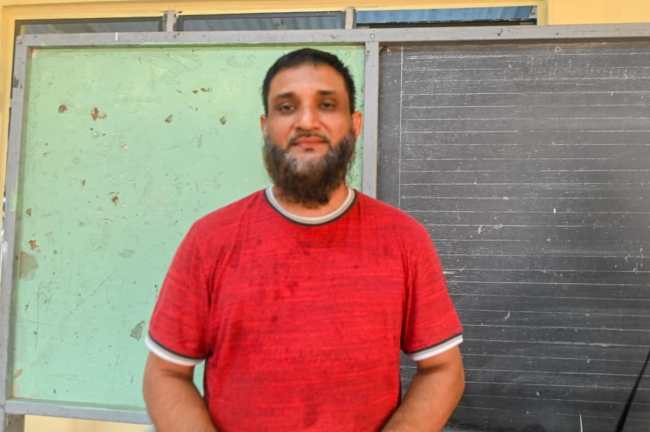AG’s Chambers takes restorative justice awareness sessions to Region Six
Residents of No.63 village, New Amsterdam, and several other areas in Region six (East Berbice Corentyne) on Saturday benefitted from a public awareness session on restorative justice hosted by the Attorney General’s Chambers.
This session forms part of a gamut of activities under the IDB-funded Support for the Criminal Justice System (SCJS) programme, which is aimed at addressing the overcrowding in prisons by focusing on two aspects: the overuse of pre-trial detention, and the over reliance by the criminal justice system on custodial sentences.

It is a continuous exercise, aimed at sensitising citizens to the provisions of the Restorative Justice Act, in addition to educating them on their role in implementing this practice.
These sessions also set the stage for restorative justice training to begin in the communities.
Restorative justice is an alternative approach to justice that sees the involvement of the victim, the offender and the community.

The three-pronged measure seeks to ascertain the harm caused, underlying circumstances that led to the offense, as well as decide on adequate correctional actions.
One East Canje resident, Abdul Hafeezmahinudin of the Central Islamic Organisation of Guyana, was among the first batch of trainees of the Restorative Justice Programme in 2021.
“Twelve persons were selected, including myself, for the certificate programme. Now that we have been trained in this programme, especially given that we have all come from different backgrounds, we have seen how restorative justice works in different systems,” he told the Department of Public Information (DPI).

He said that government’s approach to introducing this form of justice is more systematic in nature, and will serve to bring meaningful resolutions to minor offenses.
“The training gave us a perspective in the sense that we can really manage minor cases within our communities before it reaches to a level where people may be sentenced for petty crimes, and it helps to find healthy resolutions for persons who may have minor anger issues and such. At the end of it, there is no judgement made. Rather it allows the victim and the wrongdoer to find a solution between themselves that they agree on, and I think this really helps people to reintegrate into society without having the stigma-related issues in the communities,”
He said that he looks forward to the upcoming opportunities to enhance and utilise the skills garnered through this training.

“Now that the programme is being rolled out in different regions, we are definitely looking forward to strongly assisting in any way we could to use our knowledge to benefit those in need,” he relayed.
Speaking to residents of No.63 village at the Tagore Memorial School, Attorney General and Minister of Legal Affairs, Anil Nandlall, SC, emphasised that restorative justice is now part of the country’s formal justice system, and it requires that members of the community play an active role in the delivery of justice.
He reiterated that restorative justice will only apply to offences that carry a penalty of three years and below.
The AG emphasised that government remains firm on addressing crime, stressing that this approach only applies to select non-violent crimes.
“Our government has declared war on criminals and every day we are passing new laws and implementing new systems to ensure that we bring greater law and order in this country. “The theory of restorative justice is that we should not lock people away in the prison system for minor offenses. It is a waste of human resources and a burden on the state, but most importantly, when people go to prison they are supposed to be rehabilitated and reformed.”
The AG lamented that many times, the system fails to achieve these aims, and this necessitates an alternative approach to justice.
Further, this practice seeks to repair interpersonal relations, fostering community development and camaraderie.
This approach is now being implemented on the East Coast, and is expected to be extended nationally.
Regional Chairman, David Armogan, Programme Manager of the Support for the Criminal Justice System Programme, Indira Anandjit, and Director of the Restorative Justice Centre, Seelall Persaud were also present at the engagement.

